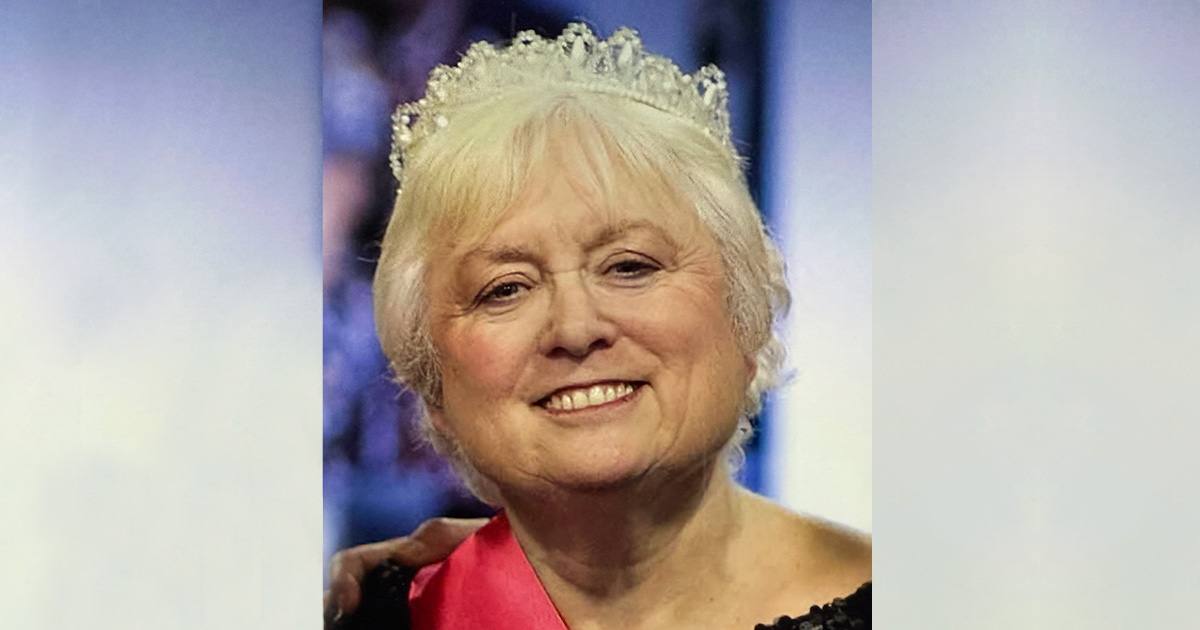Individuals require accessible, robust, current, evidence-based information about the foods they eat in order to effectively manage their diabetes; in 2003 the Nutritional Sub-committee of the Diabetes Care Advisory Committee of Diabetes UK stated:
“Nutritional advice and information is essential for the prevention of diabetes in those at risk of type 2 diabetes and for the effective management of the condition in those with type 1 and type 2 diabetes.”
There are a considerable number of studies that demonstrate the effectiveness of dietary advice using outcomes such as weight reduction and improvement in metabolic control. The UK Prospective Diabetes Study (UKPDS; 1990) diet therapy group for those with newly diagnosed type 2 and Yamaoka and Tango (2005) demonstrated that type 2 diabetes could be prevented with lifestyle changes in people with impaired glucose tolerance.
Local issues
National documents from the DoH and British Medical Association that encourage primary care to deliver more locally based services have been embraced in South Staffordshire PCT, but enthusiasm has had to be strongly managed in primary care practices since they have been unable to pay for additional practice nurse hours to meet increasing work loads (DoH, 2000; DoH, 2001; British Medical Association, 2003).
There are limited resources within PCTs and although the recruitment of a dietitian has been seen as a priority in a local development plan (East Staffordshire PCT, 2005), appointment was not possible due to national financial influences. However, throughout the PCT and local practices it was felt that education for people with diabetes, particularly nutritional information, was a priority. The practices felt that more and more work was being thrust upon them with no additional resources being provided.
Dietetic information for diabetes is often given within the limitations of a 15-minute appointment, which also includes the important task of computerised data entry. Practices therefore need more support in the delivery of consistent standardised food messages for people with diabetes no matter what stage of the condition the individual is at. Different models of service delivery need to be explored.
Dietetic advice for people with diabetes was previously given by a variety of healthcare professionals throughout the progression of the condition. This dietetic advice may have been ad hoc and with little planning. Some areas of information may have been heavily covered and others missed altogether. Out-of-date messages may have been given owing to evidence-based information not filtering through to the healthcare professional giving the advice. It is appreciated that a frequent complaint heard from people living with diabetes is that the information given is often contradictory resulting in difficulties in making informed positive changes. This may have occurred due to the rapid growth of the evidence base supporting a balanced diet and not all healthcare professionals being able to keep up-to-date on all areas of care.
Prior to the introduction of the Diabetes Education for Self Management Ongoing and Newly Diagnosed (DESMOND) structured educational programme in South Staffordshire PCT the delivery of general diabetes education was not structured, nor did it have trained educators who were quality assured: thus, it did not meet the criteria set by NICE for structured education for diabetes (NICE, 2003).
John Reid, who at the time was Secretary of State for Health, said:
“…the focus on patient involvement and self-management require considerable change to the way many services are delivered.”
(DoH, 2005a)
This and the service redesign within the NHS that were ongoing at the time provided the impetus to base a new service delivery strategy around the DESMOND philosophy of encouraging self-management through the development of behaviour-change strategies.
“Active involvement of the person with diabetes is the cornerstone of diabetes care.”
(Diabetes UK, 2005).
This, also, was incorporated into the developing MUNCH initiative.
Locally, the authors identified that DSNs had the skills to provide clear basic dietary messages and therefore could be utilised close to the practice setting by providing ease-of-access and minimal waiting times for educational programmes. Both these areas were identified in the document Improving Diabetes Services – The National Service Framework Two Years On (DoH, 2005a).
Aims
The MUNCH initiative is designed to be useful for across a wide demographic, but the core group targeted are people living with type 2 diabetes, their carers and families. Others who have attended include:
- people with impaired fasting glucose.
- people with impaired glucose tolerance.
- those at high risk of developing type 2 diabetes owing to the presence of hypertension, coronary heart disease, family history or increasing weight gain.
- people with chronic heart disease.
The philosophy and food messages from the DESMOND programme were incorporated into the MUNCH initiative supermarket tours. For the diabetes team, these are not considered to be supermarket tours in the traditional sense because the facilitator (one of the DSNs) does not play the role of teacher or lecturer, but instead encourages the group to work out the better food choices for themselves and then decide whether or not they wish to change their behaviour and develop an action plan for their diet. The whole of the new local diabetes service is based on this model of behaviour change and self-management.
Wanless (2002) stated:
“Giving patients choices, putting them in control and keeping them fully engaged in their health care is more effective than if people are passive recipients of the service”.
The aim of this service is to support this philosophy. It was also an opportunity for general practices and the primary care diabetes specialist team to begin to collaborate to achieve Standards 1 and 2 of the National Service Framework (NSF) for diabetes (DoH, 2001).
Methods
The MUNCH initiative is run in locally participating supermarkets. It covers the key healthy eating messages that have often been suggested to people before, but translates these messages into visual and hands-on learning. As part of the supermarket tour, particular areas within the stores are visited. These include the fresh fruit and vegetables section; the bakery; the fish and meat counters; and the aisles containing prepared meals; dairy products; cooking sauces; breakfast cereals; pasta and rice; soft drinks; alcoholic drinks; oils and fats; biscuits and sweets.
As a group, participants can compare and contrast products that they may normally buy and determine if they are making healthy eating choices. They are able to practice how to look at food products, understand what the labelling means and how it can be used, if so chosen, to contribute to a healthier diet.
As an example, people are asked to look at the cereal they would normally eat and, as a group, the messages around each choice are discussed so that the healthier option is arrived at by the group and individual informed choices can then be made.
The tours explore the meaning of the new traffic light labelling used in many supermarkets and promoted by the Food Standards Agency (Figures 1 and 2). Also discussedis the total daily allowance scheme, which shows how much any one product contributes to daily nutritional requirements (Figure 3). Adapting to different messages within different supermarkets is important to meet the needs of different shoppers, for example, those on different budgets or with a low level of cooking skill.
The MUNCH initiative reinforces healthy eating messages and promotes the concept of making small changes to meet long-term personal goals, such as reduction in portion size or the frequency with which ‘unhealthier’ foods are eaten. The effect of timing and eating sugary foods is explored in relation to their impact on blood glucose levels.
Locally, healthcare professionals were made aware that the MUNCH initiative was going to take place, thus the group leaders received a large number of referrals prior to the actual launch. This demonstrates the degree to which the previous service provision had fallen short. However, by using the MUNCH initiative diabetes services can meet Standards 1 and 2 from the NSF for diabetes (DoH, 2001), by helping identify, understand and reduce cardiovascular risk factors by meeting the educational needs of those with impaired fasting glucose and impaired glucose tolerance.
Initially, we aimed to hold the MUNCH initiative once a month. The diabetes team was already working closely with Sainsbury’s pharmacy by holding two evening clinics (17:00–21:00) per week on site. Two hours of this time was set aside each month to deliver the MUNCH initiative to individuals referred. This was deemed a good use of time as ten people could be seen in the time it would normally take to see 3–4 people. In negotiation with the local Sainsbury’s, a time slot at 19:30 was agreed on a Thursday evening for the supermarket tour as this is one of their quieter times.
The local media, including newspapers and radio stations, were invited to the launch of the MUNCH initiative to which six people with both newly diagnosed and existing diabetes were due to attend. This approach increased public awareness and many bookings were made subsequently.
Currently, the MUNCH initiative is delivered only by DESMOND-trained and quality-developed educators and facilitators.
Benefits to people with diabetes
Quotes from two participants:
“Making the healthy choice isn’t always easy – sometimes there seems to be so much to remember!”
“The tour let me look at types of fats, salt, sugar and portion size. I felt it gave me time to review healthy eating messages and look at real foods I would buy. Having the time to do this was a great help as it made me think again about what does ‘healthy’ really mean”.
The Common Sense Learning Theory (Leventhal and Diefenbac, 1996) states that one of the key questions to be asked at diagnosis of a long-term condition is: ‘How can my condition be managed?’ Another is: ‘What are the consequences of having this long-term condition?’ The MUNCH initiative provides a great opportunity to explore some of these concerns and lends itself well to working with people’s differing health beliefs. Throughout the session, the following are considered:
- Who is responsible for the management of a person’s diabetes?
- What do they want to achieve through their efforts into diabetes management?
- What could stop them managing their own diabetes?
These are important health beliefs that form part of the DESMOND philosophy and are addressed early on in the MUNCH initiative as some people believe that diabetes management and changes in treatment lie deeply in the domain of the medical world. Throughout the MUNCH initiative, the focus is on what choices people may or may not wish to make. It is recognised that some choices will be easier than others. Also considered are the benefits that may be achieved by making such choices in both the short and the long term and what personal barriers to mastering that behaviour change may exist.
Some barriers to behaviour change may be grounded in medical myths and legends the individual has come across. Exploring such perceptions as part of the MUNCH initiative and within a group allows a broader view and can increase the range of choices that can be made.
Mastery is achieved within the MUNCH initiative as people are able to work out the appropriate levels of sugar and salt and develop the confidence to choose to reduce their intake. This is seen in the self-efficacy social learning theory (Bandura, 1977).
The same messages are explored as in the DESMOND programme, aiming to reduce cardiovascular risk factors and the development of microvascular complications by being able to reduce blood glucose levels through choice and type of food.
As with the DESMOND philosophy, the learning approach is not didactic, but comes instead from discovering the information from within the group by sharing knowledge. Small pieces of information are discussed at one time in a piecemeal approach as the group progresses along specific aisles of the supermarket. By the end of the MUNCH programme, all food messages and personal enquiries and concerns have been addressed.
By working on the assumption that participants are heuristic in their style of thinking (where matters such as diet are recognised but not considered in depth; Bond et al, 2006) the way in which the MUNCH initiative is delivered can be tailored to optimise learning. Through such a heuristic approach, the learning credibility belongs to the group rather than a teacher. Therefore, knowledge is well grounded and likely to remain so even when that person’s knowledge is later challenged.
Conclusion
It is hoped that the MUNCH initiative, together with other areas of care, will be able to increase the confidence of people with diabetes’ in making healthier food choices that will reduce the progression of diabetes and thereby achieve better health outcomes.
This approach supports the need for local innovation and integration discussed in the NSF for long-term conditions (DoH, 2005b). In the NSF, the focus was between health care and social care; however, the authors believe that integration of services can occur wherever the other organisations skills and services are beneficial to care.
In South Staffordshire PCT, this initiative aims to meet the needs of the local population with both diabetes and chronic heart disease within restricted resources. Such people have had only ad hoc dietetic advice in their practice and some have had none at all: it would be very unlikely that such people have been able to achieve optimal management of their diabetes in order to reduce the risks of future complications.
It is acknowledged that this initiative does not replace the need for specialist dietetic advice where it is required. The MUNCH initiative offers basic food messages that are adequate for most people with diabetes, which then enables them to make informed choices for improved future health.





NHS England to allow weight-loss injections for prioritised patient cohorts from late June.
5 Apr 2025